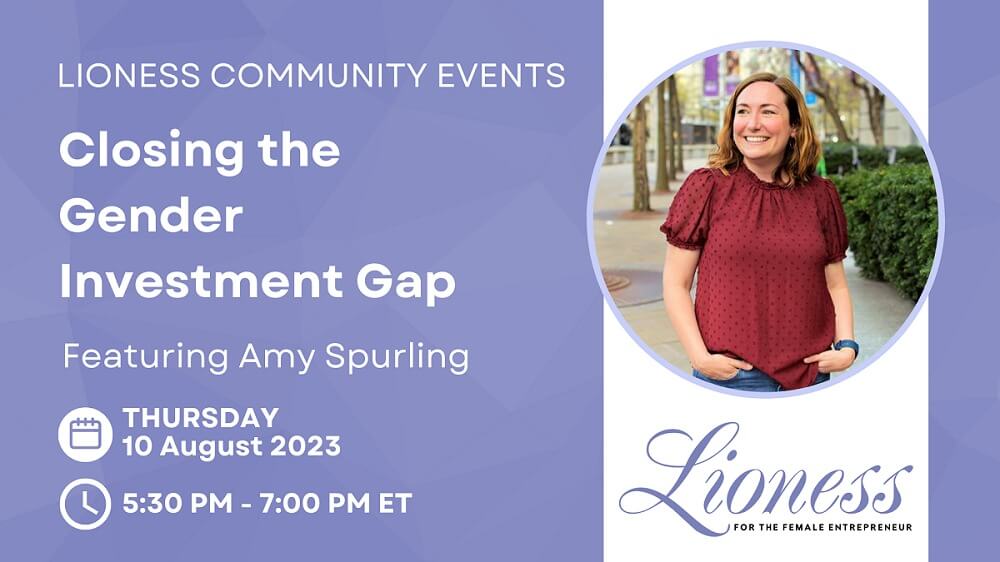Investors disproportionately fund businesses founded and led by white men. The equity problem is probably worse than you think.
Last year, venture capitalists invested just 1.9 percent of their capital in startups with all-women teams. That’s even worse than the 2.4 percent they invested in 2021. Mixed-gender teams raised 17.2 percent of the funding. The other $192.8 billion of investment went to all-male teams. Even so, startups with Black founders fared no better. Their slice of the VC pie shrank from 1.5 percent in 2021 to just 1.1 last year.
Women are half the population. Fourteen percent of Americans are Black. So why do startups founded by these groups receive such a disproportionate dearth of funding? You know it’s not because women or Black people lack innovative ideas or entrepreneurial skills, as one glance at our features archive will demonstrate. It’s often because of systemic bias.
A false perception of equity within the industry—and the inevitably damaging consequences
Eight in 10 investors say multicultural and women business owners get the right amount, or more, of capital they deserve to run and grow their businesses. White men manage 93 percent of all venture capital dollars. When they look at the startup industry, they don’t see a glaring imbalance. They don’t notice who’s missing because they and their peers have a seat at the table.
Because of systemic bias, women and people of color are losing opportunities to innovate, start businesses and grow their companies. Seeing their underfunded peers, they feel discouraged from entrepreneurship, especially high-growth startups that require funding and outside capital. The market, especially women consumers and consumers of color, is sorely missing the products and services they could create. And, in our changing world, we need every available brain cell working on the biggest problems of the day.
There is no legal shield against discrimination in venture capital anywhere in the United States. Nor is there a law to prevent sexual harassment in venture capital, despite investors’ easily abused power over founders. But female founders are advocating for change – and you can help.
Woman founders and entrepreneurs are pushing for legislation to increase gender equity in venture capital
Activists in California and Massachusetts are leading the fight against venture capital discrimination. Two capital equity bills are appearing before the Mass. legislature and one before the Calif. state senate.
The Mass. bills, S.978 and H.1708, both called “An Act relative to fair investment practices”, will extend workplace sexual harassment and gender discrimination protections to venture capital and equity investor relationships. State Senators Cindy F. Friedman, Paul W. Mark, Joanne M. Comerford and Pavel M. Payano petitioned for S.978, and State Rep. Tram T. Nguyen put forth H.1708. These bills come from advocacy by the Coalition for Capital Equity, led by Amy Spurling, Dr. Mandy Pant and Gitanjali Swamy. The Coalition is also working on creating programming and education for venture capitalists and entrepreneurs on topics like implicit bias and preventing harassment.
Too many founders have told us stories about VCs taking advantage of their investor power to ask for “pitch meetings” they treat like dates. The founders felt they had no recourse. However, the Mass. bills, if passed, will make sexual harassment from VCs legally punishable. The bills will also create a compliance-based approach to discrimination regulation, similar to Federal Fair Lending Laws. You can learn more about the Mass. bills in this flier.
The Calif. bill, SB-54, seeks to hold venture capital accountable by requiring more transparency from investors and investment firms. By making data about investing public, the bill will consequently give activists and legislators a concrete way to measure discrimination. It’s easier to push back when you know how far you need to push! This bill comes from advocacy by Allison Byers, Derek Ali, Marquesa Finch and Divya Reddy. You can watch their testimony to the California Assembly Banking and Finance Committee here.
What can you do to help pass these equity bills and make venture capital more accessible?
Everyone can contribute to the struggle for capital equity. Depending on how the bills go forward in Massachusetts and California, we may see the movement spread.
If you live in Massachusetts, you can:
- Reach out to Coalition for Capital Equity at capitalequityma@gmail.com.
- Contact your state senator and representative and ask them to support S.978 and H.1708.
- Ask your in-state friends to contact their state senators and representatives.
- Sign up for the Zoom meeting with the Coalition for Capital Equity we are hosting in August. At the meeting, Amy Spurling will go in-depth on ways you can support this legislation.
If you live in California, you can:
- Contact your state senator and ask them to support Senate Bill 54.
- Ask your in-state friends to contact their state senators and representatives.
If you live in another state or country, you can:
- Ask your friends in California and Massachusetts to contact their senator or representative about the appropriate equity bills.
- Petition for capital equity legislation in your state.
Wherever you live, one of the most powerful things you can do to improve equity in venture capital is to talk about it. When venture capital comes up, mention how much less VCs fund women and people of color; when funding announcements look like a lineup of Bachelorette contestants, ask why no women-led startups were included; and when you see marginalized founders get funded, celebrate publicly. Many people have no idea just how inequitable venture capital is. The more people speak out, the more legislators will realize this issue matters.
To share your own experiences about gender and race in venture capital, please fill out this survey.
Want to learn more about the gender equity issue in venture capital and how to fix it? Lioness’s next community event, “Closing the Gender Investment Gap,” is a timely discussion led by Amy Spurling of new legislation designed to combat the unequal funding landscape. Check out the full details below!
Closing the Gender Investment Gap
With Amy Spurling | Thursday, August 10th, 2023 | 5:30 – 7:00 p.m. EDT
What’s it about?
Recognizing the potential of gender diversity on business performance and the existing gender investment gap (hello, less than three percent of venture money funds female founders), we feel that investors need to:
- Measure and report gender data
- Diversify their investment teams
- Implement bias training
- Create initiatives to support women entrepreneurs
By helping to close the gender investment gap, VCs can help unlock untapped potential, foster innovation and contribute to job creation and economic growth.
There are currently bills pending addressing the investment gender gap in both California and Massachusetts. What can we as female founders do to support these kinds of initiatives? Join us to find out.







I truly enjoyed today’s webinar. I will be contacting my State reps in California and encouraging my networks to do the same.
If anyone is interested, I wrote an essay this week about the implications of a recent lawsuit challenging DEI efforts in venture capital (American Alliance for Equal Rights v. Fearless Fund Management).
Here’s the link to my essay: https://www.linkedin.com/pulse/challenging-dei-venture-capital-funding-new-action-jones-wright
Thank you again for such an insightful webinar.